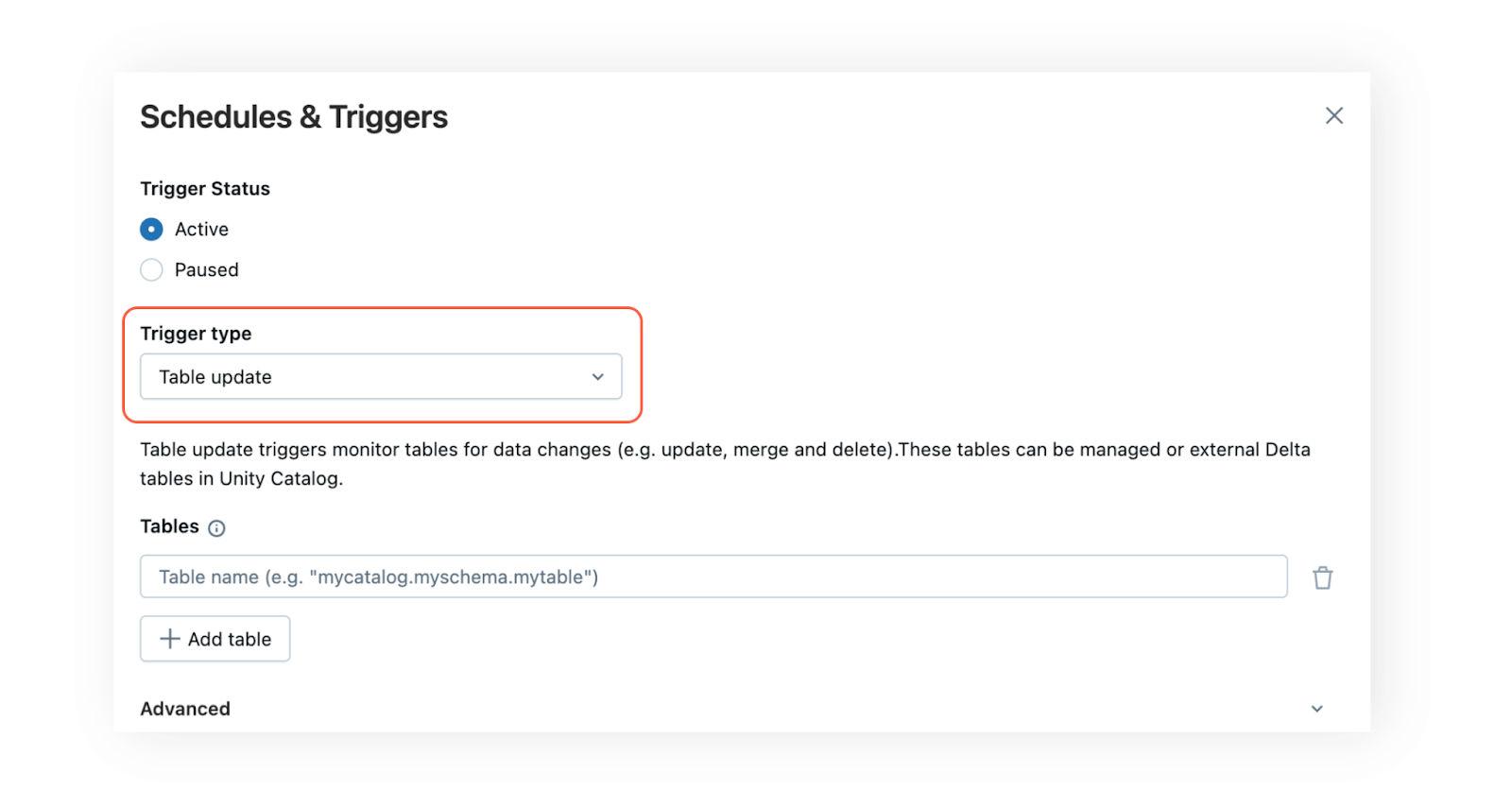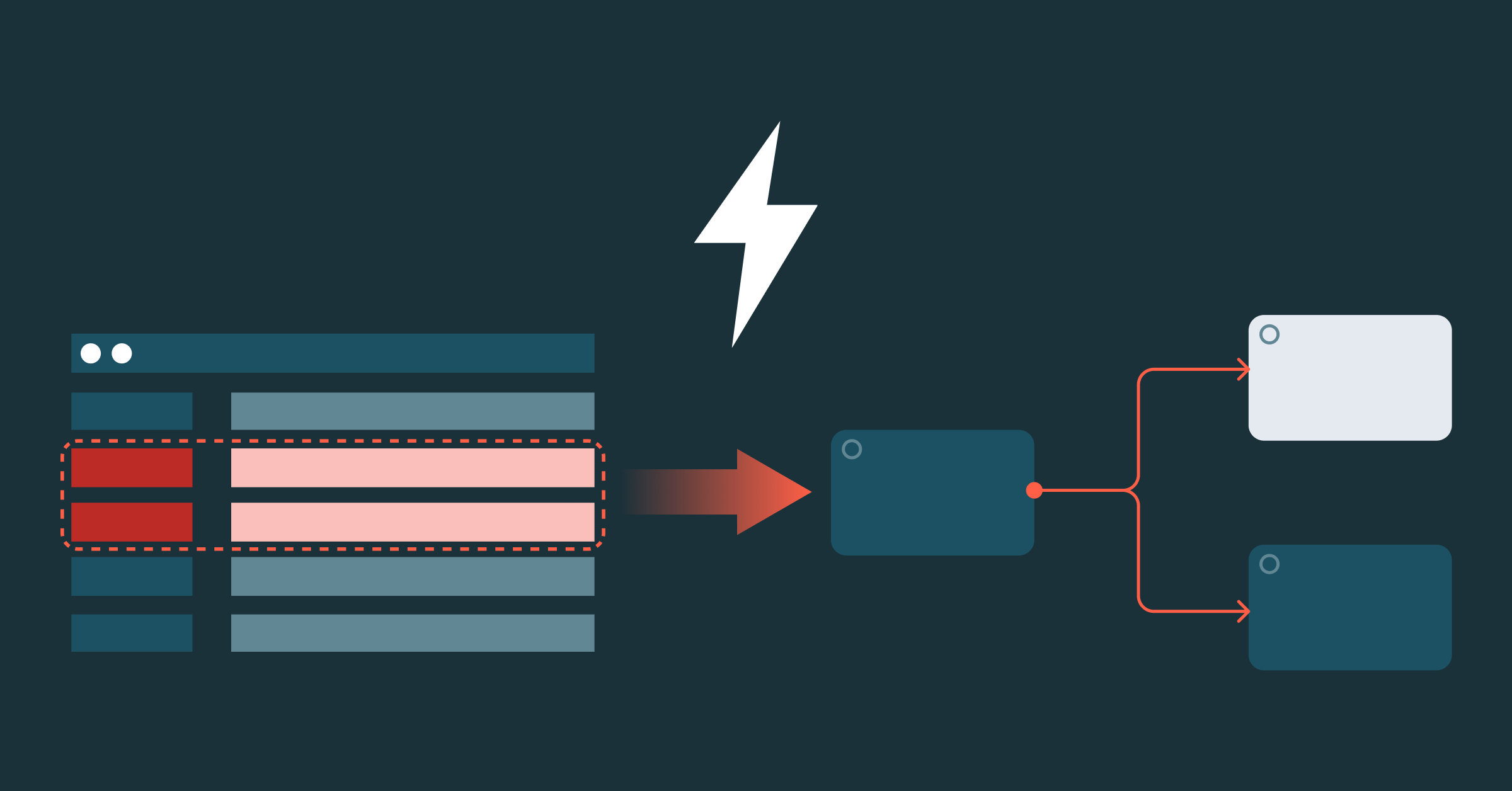Databricks is happy to announce that desk replace triggers are actually usually obtainable in Lakeflow Jobs. Many information groups nonetheless depend on cron jobs to approximate when information is accessible, however that guesswork can result in wasted compute and delayed insights. With desk replace triggers, your jobs run mechanically as quickly as specified tables are up to date, enabling a extra responsive and environment friendly technique to orchestrate pipelines.
Set off jobs immediately when information adjustments
Desk replace triggers allow you to set off jobs primarily based on desk updates. Your job begins as quickly as information is added or up to date. To configure a desk replace set off in Lakeflow Jobs, simply add a number of tables identified to Unity Catalog utilizing the “Desk replace” set off sort within the Schedules & Triggers menu. A brand new run will begin as soon as the desired tables have been up to date. If a number of tables are chosen, you’ll be able to decide whether or not the job ought to run after a single desk is up to date or solely as soon as all chosen tables are up to date.

To deal with situations the place tables obtain frequent updates or bursts of information, you’ll be able to leverage the identical superior timing configurations obtainable for file arrival triggers: minimal time between triggers and wait after final change.
- Minimal time between triggers is helpful when a desk updates ceaselessly and also you wish to keep away from launching jobs too typically. For instance, if a knowledge ingestion pipeline updates a desk a couple of occasions each hour, setting a 60-minute buffer prevents the job from working greater than as soon as inside that window.
- Wait after final change helps guarantee all information has landed earlier than the job begins. For example, if an upstream system writes a number of batches to a desk over a couple of minutes, setting a brief “wait after final change” (e.g., 5 minutes) ensures the job solely runs as soon as writing is full.

These settings offer you management and adaptability, so your jobs are each well timed and resource-efficient.
Scale back prices and latency by eliminating guesswork
By changing cron schedules with real-time triggers, you scale back wasted compute and keep away from delays attributable to stale information. If information arrives early, the job runs instantly. If it’s delayed, you keep away from losing compute on stale information.
That is particularly impactful at scale, when groups function throughout time zones or handle high-volume information pipelines. As a substitute of overprovisioning compute or risking information staleness, you keep aligned and responsive by reacting to real-time adjustments in your information.
Energy decentralized, event-driven pipelines
In massive organizations, you won’t all the time know the place upstream information comes from or the way it’s produced. With desk replace triggers, you’ll be able to construct reactive pipelines that function independently with out tight coupling to upstream schedules. For instance, as an alternative of scheduling a dashboard refresh at 8 a.m. on daily basis, you’ll be able to refresh it as quickly as new information lands, making certain your customers all the time see the freshest insights. That is particularly highly effective in Knowledge Mesh environments, the place autonomy and self-service are key.
Desk replace triggers profit from built-in observability in Lakeflow Jobs. Desk metadata (e.g., commit timestamp or model) is uncovered to downstream duties through parameters, making certain each job makes use of the identical constant snapshot of information. Since desk replace triggers depend on upstream desk adjustments, understanding information dependencies is essential. Unity Catalog’s automated lineage gives visibility, displaying which jobs learn from which tables. That is important for making desk replace triggers dependable at scale, serving to groups perceive dependencies and keep away from unintended downstream influence.
Desk replace triggers are the newest in a rising set of orchestration capabilities in Lakeflow Jobs. Mixed with management move, file arrival triggers, and unified observability, they provide a versatile, scalable, and trendy basis for extra environment friendly pipelines.
Getting Began
Desk replace triggers are actually obtainable to all Databricks prospects utilizing Unity Catalog. To get began:

